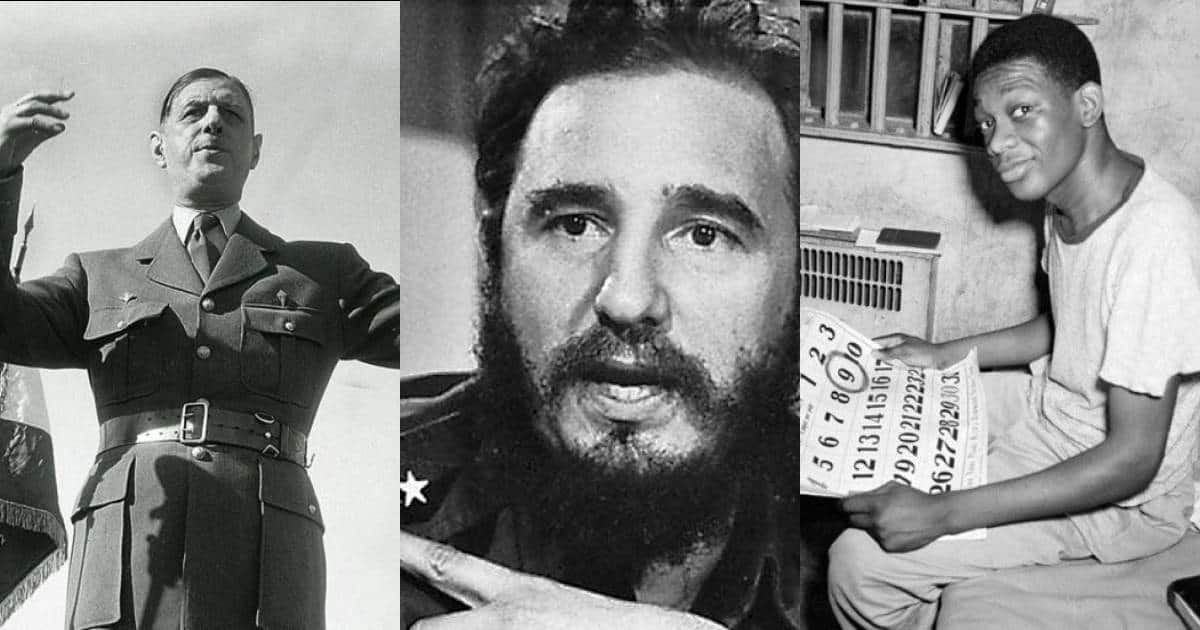Death comes to every man eventually. However, throughout the course of history, there have been certain individuals who have dared to look death in the face – and get away with it. Whether through dumb luck, tremendous bravery or, in many cases, a healthy mixture of both, some men have been able to defy the odds and live to tell the tale. In some instances, their perseverance has led them to gain near-mythological status, and sometimes it’s the legend that gets remembered rather than the true story.
The ability to survive certain death is not limited to one single social class. As the following stories from history show, both kings and common criminals have laughed in the face of their own mortality. Sometimes they took great resolve from their close shaves, with the near-death experiences driving them onto even greater things. At other times, however, they simply carry on leading a quiet life. Or, well, sometimes the miracle is just a brief respite from the inevitable.
So, here are ten men from history who proved hard – if not impossible – to kill:

Grigori Rasputin
No list of “unkillable men” would be complete without a shout out to Grigori Rasputin. Though he did indeed die, he did not go quietly or quickly into that good night. Instead, he really made his assassins work for it. And his struggle to the very end has only served to enhance the legend of Rasputin, the self-proclaimed mystic who charmed his way into the inner circle of the Russian royal family – and arguably hastened its downfall.
He has gone down in history as the “mad monk” of Russia. But that moniker only tells half the story. Rasputin was born in a small village close to the Ural Mountains in 1869. His early years were nothing out of the ordinary: he got in trouble with the law as a youth but then married a local woman, had kids and settled down to work on the family farm. Then, in 1892, he joined a local monastery. While he never took his Holy Orders (and so wasn’t, in fact, a monk), he became increasingly religious.
Around the turn of the century, he moved to St Petersburg. His unique and undeniable charisma soon earned the attention of the nobility. And so, from around 1905 onwards, he had enjoyed rapid ascension through the upper echelons of Russian society. Before long, he had been introduced to Tsar Nicholas II and his wife, Alexandra. Soon he was acting as a spiritual advisor to both. Rasputin would even advise the Tsar on policy matters and court appointments. But he really earned their trust and admiration by treating their son, a haemophiliac, nursing him back to health (quite how he managed this is the source of much debate).
Unsurprisingly, the elite of Russian society were not happy at Rasputin’s growing influence in the Imperial court. Nor were they happy with his drunkenness and serial philandering – which included affairs with many wives, as well as common prostitutes. When they felt Rasputin’s ways were damaging Russia’s reputation and the people’s morale during the First World War, Felix Yussaprov brought together a group of men ready and willing to act. Killing Rasputin would, they believed, help save the Tsar’s reputation and stave off the threat of revolution.
The assassins struck on 30 December 1930. According to Yussaprov’s own account, the men invited Rasputin for dinner. There, they served him a feast laced with cyanide. To the assassins’ surprise, the poison had little effect on Rasputin. Desperate, Yussaprov took his revolver and shot Rasputin several times. Still, he refused to die. Rasputin tried to get away, but finally the men caught him, held his head underwater and succeeded in drowning him.
Over the decades, the lines between fact and myth have become blurred. Some historians believe the accounts of Rasputin’s death to be exaggerated, only adding to the myth of the man himself. However he died, the murder was almost certainly in vain. Even with Rasputin gone, the people still rose up to overthrow the Tsar and his wife, with the royal family also brutally murdered just a short time later.

